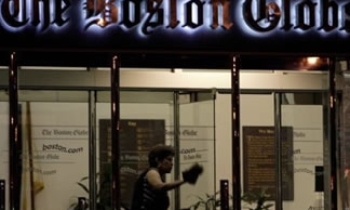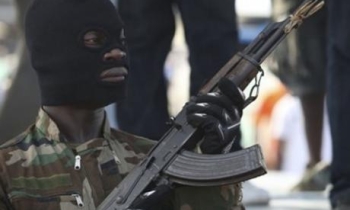NEW YORK: In the 11 days since Judith Miller left jail after agreeing to testify before a federal grand jury about her sources, many of the facts in the case have yet to come out. But one thing is clear: Her newspaper, The New York Times, has had very little to say about her role in the Plame/CIA leak case, and has been regularly scooped by other papers on the latest twists in her involvement.
The newspaper promised a full accounting by now, but then put it off after Miller was told she had to chat with the federal prosecutor again, on Tuesday. Executive Editor Bill Keller was quoted in an online Business Week article Monday suggesting that the complexities of the situation put the paper in the "uncomfortable" position of not being able to share important information Miller knows.
The paper had to run a correction today on one bit of information it did confirm (after it was widely published elsewhere): The previously unknown conversation between Miller and I. Lewis Libby took place on June 23, 2003, not June 25 of that year.
The all-holds-barred reporting by the Times about a national story partly based in its own newsroom has drawn comments from several daily newspaper editors, who tell E&P that the Gray Lady needs to open up more about one of its own. But more than half of the top editors polled by E&P on this subject declined to comment, refusing to leap to the paper's defense, or condemn it.
"What bothers me is that they have been quiet about it since she got out of jail, not sharing with the readers anything," says Doug Clifton, editor of The Plain Dealer in Cleveland. "Once she was out, they owed it to readers to share what she testified. She ought to have shared with readers what she shared with the grand jury."
Clifton also questioned the Times' approach in putting together a story about Miller's jailing if editors who have a long association with her, or have championed her actions, are part of the process.
"Maybe because of the Times' stature, it elevates this whole thing to a national audience," he said. "Perhaps they should get someone more removed to handle it, to direct the reporters who are doing a good reporting job on just what happened," Clifton told E&P, "someone out of the direct chain of command."
Clifton would not go so far as to advocate an outsider coming in to run that reporting project, which is well underway, but he said, "if they want it to be above reproach, get the public editor to do it. The important thing is to give an accounting."
For Dennis Ryerson, editor of The Indianapolis Star and former editor of the Des Moines Register, the minimal Times reporting is unusual. "I've been surprised at their lack of aggressiveness throughout," he told E&P. "They didn't even break the story of her getting out of jail." Ryerson added that "usually they can be counted on to provide the best perspective on things, even when it involves their own. It seems unusual for them that we are not seeing more."
When asked how he would have covered the story, Ryerson would not say. He also pointed out that "there may be things that we do not know that will come out" related to how the Times has taken the approach it has.
Phil Bronstein, editor of the San Francisco Chronicle, was not as critical, but he noted the importance of the Times explaining its actions and those of Miller completely. "More is always better," he said when asked about how they have reported on Miller's decisions. "While we in the profession are much more interested in the detail and minutiae, when you are in the position that The New York Times is in, you need to disclose everything to a fault. It looks like they might, but we don't know."
Bronstein said the entire episode of Miller's sourcing and jailing "raises some issues that are disturbing" such as, "How do you determine that a source is not being coerced?" But, in the Times' defense, he said, "It is always more complicated than it seems to be on the outside."
When asked how he would have covered it, Bronstein said, "I'm glad I'm not in their shoes."
Mike Days, editor of the Philadelphia Daily News, said that in some ways an uninvolved newspaper's coverage of the Miller story might be best anyway, noting that it would be difficult for the paper to cover itself. "An independent voice coming at it is probably better than the Times," Days said. "I am happy to read coverage of [Miller] in other papers."
Asked how he would have covered the story, Days quipped, referring to his paper's often offbeat or humorous approach to the news: "This is the Philadelphia Daily News. We would have had her do a daily diary and she would have been blogging from inside the jail cell."
Leonard Downie Jr., Executive Editor of The Washington Post, was one of several editors who declined to comment on the situation, saying, "I'm in charge of this paper, not that one." (At least two of his reporters have also testified before the Plame grand jury.) Amanda Bennett of The Philadelphia Inquirer, Ken Paulson of USA Today, Ann Marie Lipinski of the Chicago Tribune, and Robert Rivard of the San Antonio Express-News, among others, also took a pass.
Joe Strupp (letters@editorandpublisher.com) is a senior editor at E&P.









